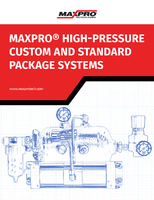ASTM Standard provides guide to interlaboratory studies.
Press Release Summary:
Developed by D02.94, Coordinating Subcommittee on Quality Assurance and Statistics, part of Committee D02 on Petroleum Products and Lubricants, ASTM D7778 provides overview of steps needed in an interlaboratory study to obtain precision and bias statements, particularly as they relate to standards for petroleum products. Standard was developed as companion document to ASTM D6300, Practice for Determination of Precision and Bias Data for Use in Test Methods for Petroleum Products and Lubricants.
Original Press Release:
New ASTM Standard Provides Guide to Interlaboratory Studies
W. CONSHOHOCKEN, Pa., —All ASTM International test methods are required to include statements on precision and bias. A new ASTM guide provides an overview of the steps needed in an interlaboratory study to obtain precision and bias statements, particularly as they relate to standards for petroleum products.
The new standard, ASTM D7778, Guide for Conducting an Interlaboratory Study to Determine the Precision of a Test Method, was developed by D02.94, Coordinating Subcommittee on Quality Assurance and Statistics, part of ASTM International Committee D02 on Petroleum Products and Lubricants.
According to Alex Lau, president, TCL Consulting, and chairman of D02.94, ASTM D7778 is the answer to increasing requests from D02 members for interlaboratory study guidance. ASTM D7778 has been specifically developed as a companion document to another D02 standard, ASTM D6300, Practice for Determination of Precision and Bias Data for Use in Test Methods for Petroleum Products and Lubricants. While ASTM D6300 is focused on statistical treatment of data, ASTM D7778 contains guidance on the planning and management of an interlaboratory study.
ASTM D7778 includes templates for ILS plan development and data return forms, as well as examples of a letter from ILS coordinators to participants, a questionnaire to collect relevant ILS testing information and a testing protocol. Lau notes that these sample documents have been developed based on more than 40 years of D02 ILS planning and execution.
To purchase ASTM standards, visit www.astm.org and search by the standard designation, or contact ASTM Customer Relations (phone: 877-909-ASTM; sales@astm.org). ASTM International welcomes participation in the development of its standards. For more information on becoming an ASTM member, visit www.astm.org/JOIN.
ASTM International is one of the largest international standards development and delivery systems in the world. ASTM International meets the World Trade Organization (WTO) principles for the development of international standards: coherence, consensus, development dimension, effectiveness, impartiality, openness, relevance and transparency. ASTM standards are accepted and used in research and development, product testing, quality systems and commercial transactions.
For more news in this sector, visit www.astm.org/sn-energy or follow us on Twitter @ASTMEnergy.
ASTM Committee D02 Next Meeting: Dec. 2-6, 2012, Norfolk, Va.
Technical Contact: Alex Lau, TCL Consulting, Whitby, Ontario, Canada, Phone: 905-665-7995; alextclau@rogers.com
ASTM Staff Contact: David Bradley, Phone: 610-832-9681; dbradley@astm.org
ASTM PR Contact: Barbara Schindler, Phone: 610-832-9603; bschindl@astm.org                          Â




